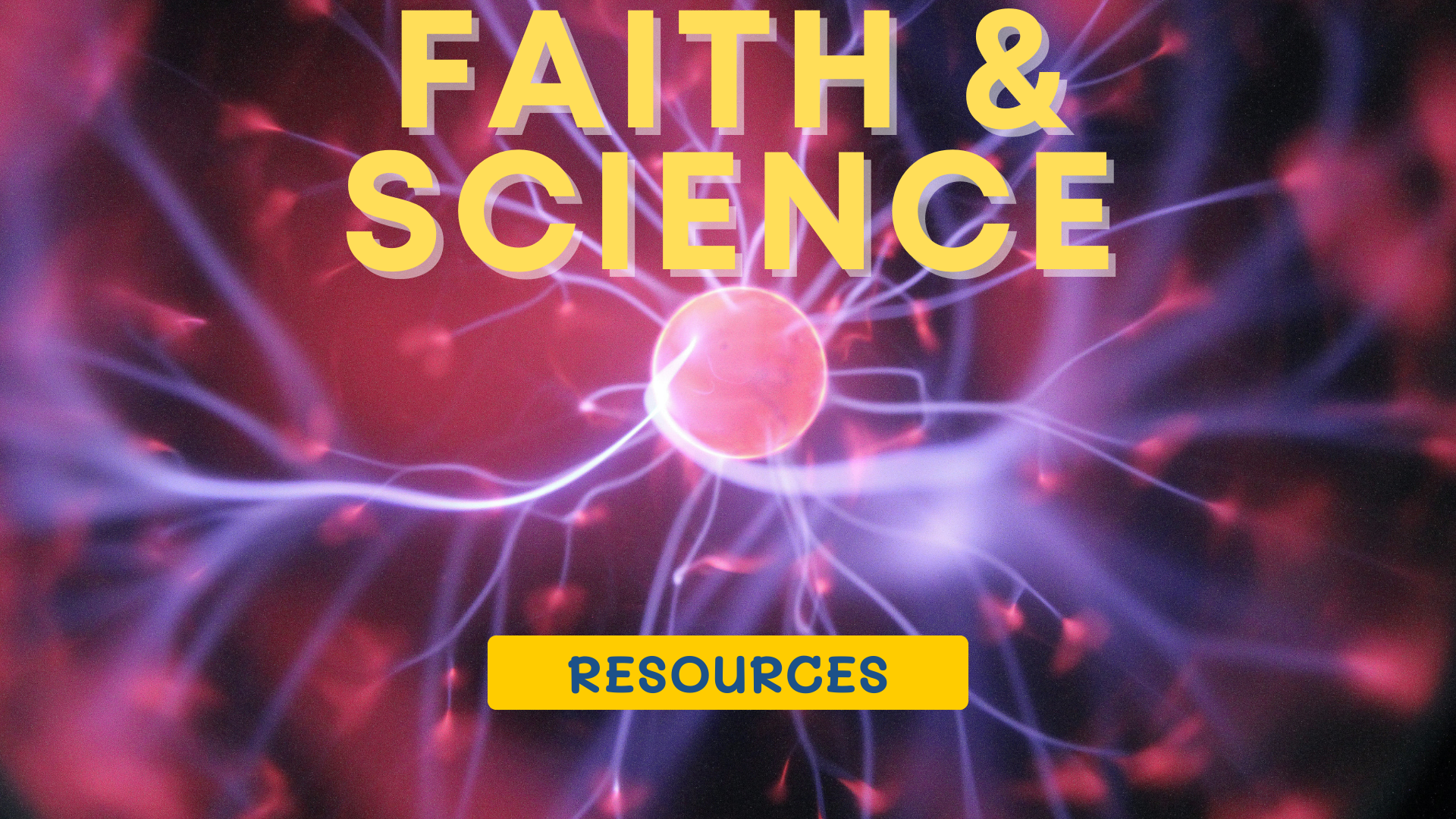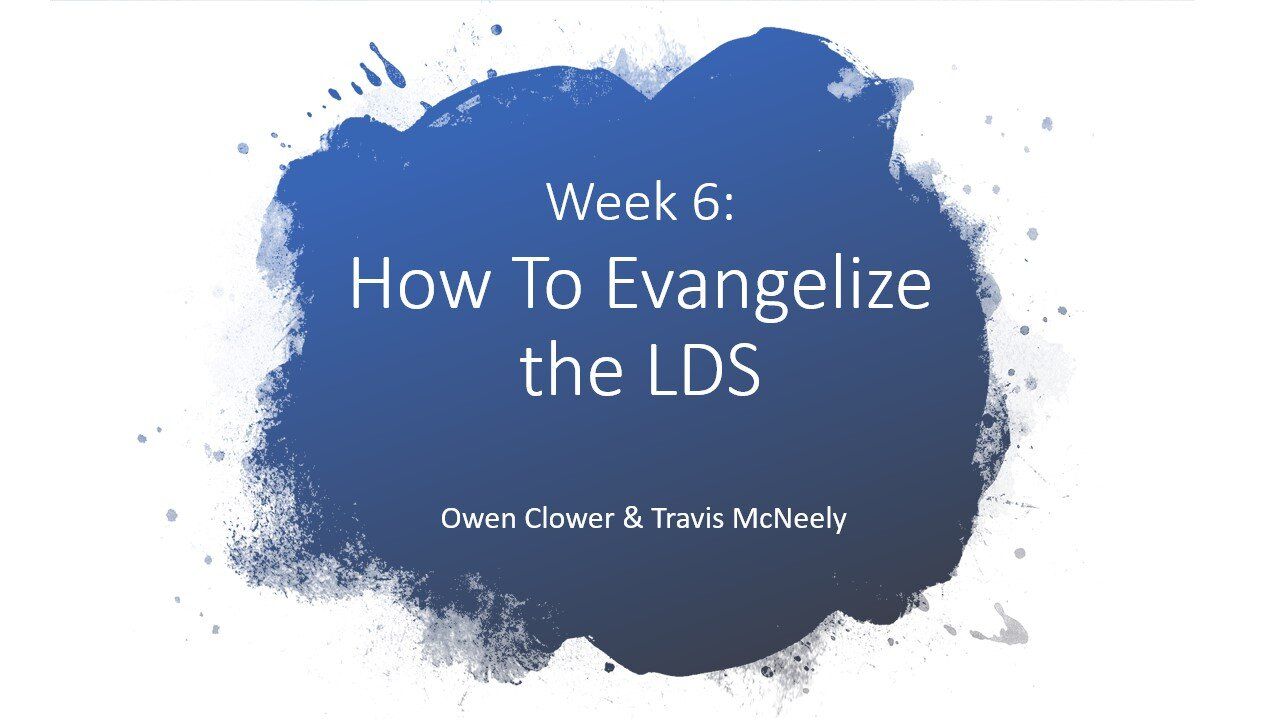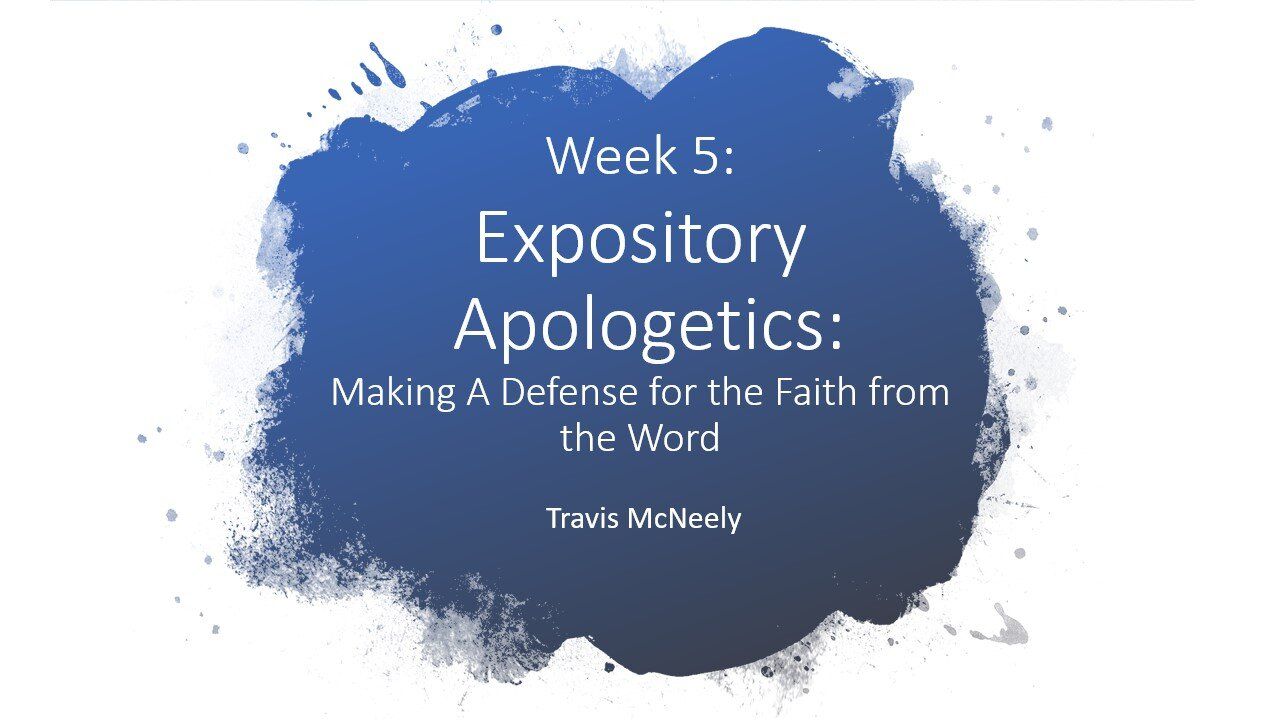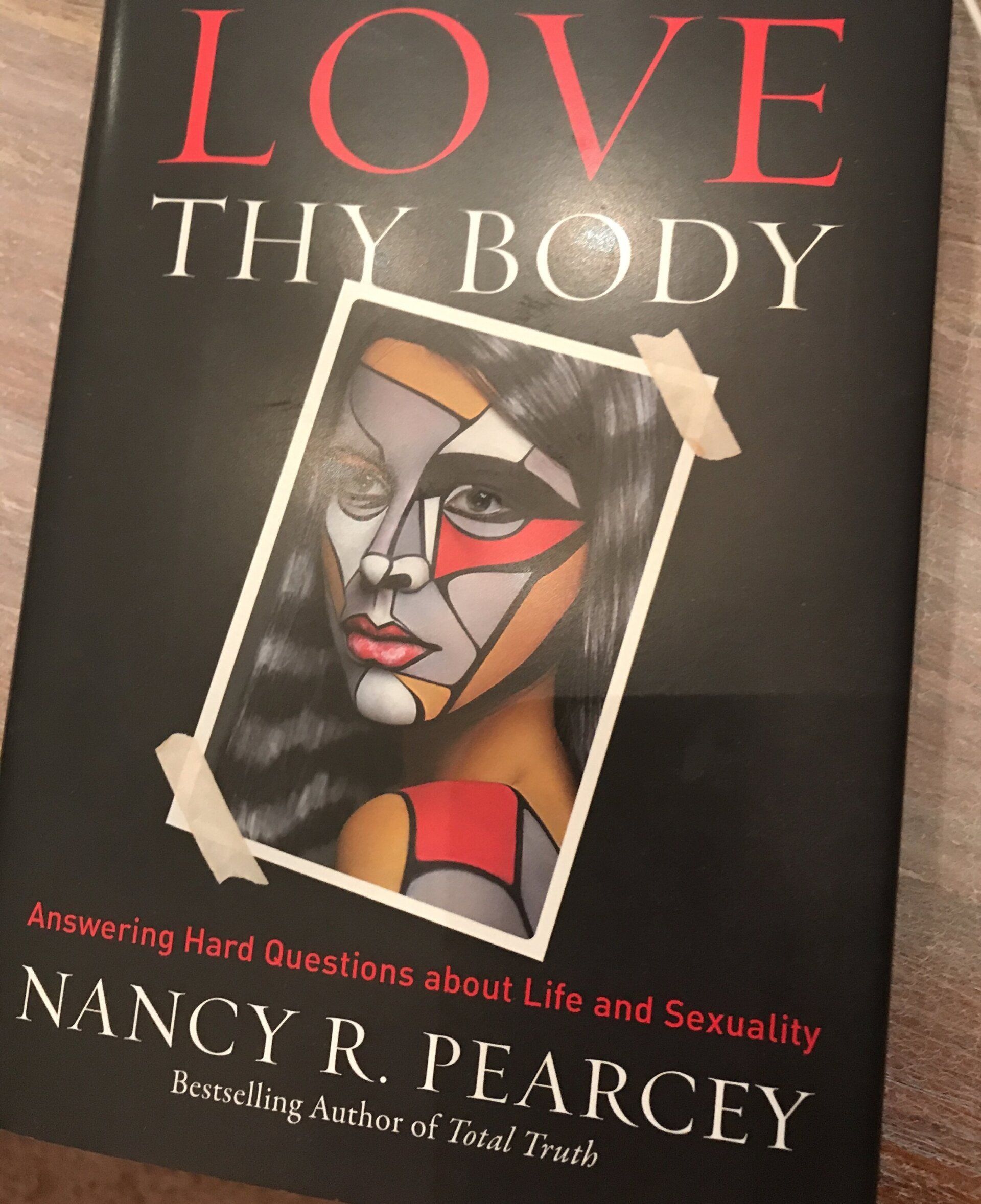The Most Important Book of 2018: A Must Read to Better Understand the Watershed Issues in our Culture


Nancy Pearcey has done it again. She has taken complex ideas, done a lot of research, and has delivered a helpful tool for the church to use for discipleship of the mind...and body. This is a book that I believe is both challenging and accessible to readers from Junior High to Ph.D.'s. As a Minister to students from the 7th grade to seniors in college, this book is incredibly helpful for applying the gospel to us as embodied persons amidst the sexual revolution. Love Thy Body: Answers to Hard Questions about Life and Sexuality is an incredible book and to see my review of it continue reading my summary below.First off, I want to share a brief
testimony as to why a book like this is necessary for this time in history. On my first Wednesday night service for our junior high and high school students, I passed out a survey they could fill out; to get information from them to know them better. One of those questions I asked was, "What is one thing you struggle with understanding in our culture/world that you want answers on?" The top two answers: (1) the problem of evil and suffering, (2) Same-sex marriage.The sexual revolution has touched everything including junior and high school students. This is no surprise of course, if you are paying attention, but we need help navigating these sensitive issues with gospel clarity that comes from the Word of God and the wisdom it gives. Pearcey does a wonderful job giving us wisdom through how God made the world relying on Scripture, Philosophy, Science, and crystal clear writing.
"When we make sexual decisions, we are not just deciding whether to follow a few rules. We are expressing our view of the cosmos and human nature." - Nancy Pearcey
When it comes to any behavior that is practiced, there are always fundamental beliefs about reality that someone is acting from--whether it is a view of the universe that is solely made of matter (materialism), or of the Christian worldview, which holds to a dualistic view of the universe: material & immaterial reality. Everyone has foundational beliefs that determine their behavior, even if they are not aware of what those beliefs may be--nevertheless they still have them.The secular ethic marinates into the culture on ideas contrary to a biblical worldview; at their root, they cause such a potent decay of society and the individual person. With insightful research and testimonies, Nancy lifts the mask from many of these issues. In the second chapter on abortion, she opens up with a chilling story of a British journalist that firmly supported abortion, but upon getting pregnant she began to wrestle with the implications of the life inside her womb. She admits that what is happening is the killing of a child, but that this evil is a lesser of two evils so that a woman can have her reproductive rights. Her article ends with a defense of women's rights, "You must be prepared to kill." (Which is also the subtitle of Nancy's chapter on abortion).Guiding the reader through the arguments she reveals how the abortion argument has shifted over the decades based initially on arguments from science in support of abortion to arguments from personhood theory contra science.She reveals that abortion at its core is anti-science. Losing arguments by science, the secularist turns to morality, stating "the moral case for a woman's right to choose" is now the one they must rely on. But the moral case is built upon how someone defines a person, which is taken from a subjective angle and not objective. There is a grave danger that comes, as Nancy reveals in the following chapter on Euthanasia, when one separates both the body and the person. If personhood is arbitrary, then anyone can make a "moral" case to either kill or destroy based off of whether or not you are deemed a person; no matter what the heart and brain monitors which science has wrought us may, in fact, say.
"We live in a moral wasteland where human beings are desperately seeking answers to hard questions about life and sexuality. But there is hope. In the wasteland we can cultivate a garden. We can discover a reality-based morality that expresses a positive, life-affirming view of the human person--one that is more inspiring, more appealing, and more liberating than the secular worldview." Nancy Pearcey, Introduction, 15.
This book I found to be very hopeful and inspirational for a number of reason which I will list here:
- Confidence that the Christian worldview genuinely coheres with the way the world really IS, in regard to moral issues. In other words, it makes sense with reality.
- This is not a book meant to ATTACK and FIGHT the culture war tooth and nail like we so often see on T.V. Rather it is a book that explains what is happening below the surface of the propaganda, media, pop-culture, and lifestyle choices. Because it can do such a good job knocking down the foundation, my aim does not have to be at the person and their sin, but rather on what Christ offers that is much more appealing than what they offer. The Christian story is much better and thus I think gives GREAT reasons to repent and believe in Jesus, because His way is SO GOOD. It truly brings about our flourishing, unlike the secular ethic.
- This book also shows where all of this is headed by examining in the final chapter Statism and Social Contract Theory. It was mind-boggling, and quite awakening how in so many ways i had adopted some of these mindsets, but thankfully because of the knowledge and wisdom that is applied in this book, it has helped me better apply 2 Corinthians 10:3-5: "For though we walk in the flesh, we are not waging war according to the flesh. For the weapons of our warfare are not of the flesh but have divine power to destroy strongholds. We destroy arguments and every lofty opinion raised against the knowledge of God, and take every thought captive to the obey Christ."
Here is a selection of quotes that I found very insightful as I was reading.
Highlights:
Abortion
In regards to personhood theory, this is a chilling quote:
"Some propose that personhood emerges when the developing organism begins to exhibit neural activity, feel pain, achieve a certain level of cognitive function or consciousness or intelligence, or even have a sense of the future. Fletcher proposes fifteen qualities to define when human life is worthy of respect and protection (such as intelligence, self-awareness, self-control, a sense of time, concern for others, communication, curiosity, and neocortical function). Score too low on any measure and for Fletcher you do not qualify as a person. You are 'mere biological life.'" p. 53"In the ancient world, Christians were distinctive for their humanitarian efforts--taking care of babies and slaves, of widows and orphans, of the sick and elderly, of the wanted and abandoned. Today, as the West sinks back into pre-Christian practices, we must once again be ready to stand with courage and conviction. We need to confront the underlying worldview of personhood theory, with its dehumanizing impact, and then find practical ways to express the Bible's high view of human life." p.81
Euthanasia
People often ask me if the concept of animal rights contradicts personhood theory. Doesn’t it counter the charge that personhood theory demeans biological, organic life? Not at all. Arguments for animal rights are just another example of weighing the value of life by instrumental measures, such as cognitive ability, instead of intrinsic value. Animal rights activists say they want to elevate animal rights to the same level as human rights, and no doubt they are sincere. But what is the logic of their argument? How do they support giving rights to animals? By arguing that certain animals—such as pigs, dogs, chimps, dolphins—have higher cognitive abilities than some humans. Therefore, those animals qualify as persons, while “inferior” humans do not. By this reasoning, not all people are persons, but some animals are persons. Peter Singer states that a newborn baby is not a person but the more intelligent animals are: “The life of a newborn baby is of less value to it than the life of a pig, a dog, or a chimpanzee is to the nonhuman animal.”63 He recommends using humans in medical experiments instead of animals, if the animals have higher cognitive capacities. Thus the value of any living thing is measured by its mental function. The animal rights movement does not contradict personhood theory. It relies on it.
The concept behind the hospice movement is that patients are whole persons, not just physical organisms. Saunders said, “I coined the term ‘total pain,’ from my understanding that dying people have physical, spiritual, psychological, and social pain that must be treated.”84 For many people, the greatest pain in dying is the emotional isolation. Saunders argued that medical care should be balanced by other forms of care: palliative care to manage pain, psychological counseling for emotional support, and practical aid for the caregiving family. In hospice care, everything is aimed at allowing the patient to live as fully as possible in the final months, with a clear mind, surrounded by family and friends. Often patients find that this becomes a time to resolve conflicts in relationships, strengthen bonds with those they love, and work through the spiritual challenge of facing their mortality. It can be a profoundly meaningful stage of their lives.
Hookup Culture
Young men often feel greater pressure not to admit their dissatisfaction with the hookup culture, but many are growing cynical. A Vanity Fair reporter interviewed several young men who use dating apps like Tinder. Some one hundred million people are using their phones as a sort of all-day, every-day, handheld singles club. “It’s like ordering Seamless,” says Dan, an investment banker, referring to the online food-delivery service. “But you’re ordering a person.” Are the men happy with the “delivery service”? No. They complain that the apps make hookups so accessible that they reduce all incentive to form relationships. “When asked if there was anything about dating apps they didn’t like,” the reporter writes, again and again the young men said, “‘Too easy,’ ‘Too easy,’ ‘Too easy.’” Alex, a twenty-five-year-old New Yorker, lamented, “Romance is completely dead.” A young man quoted in Verily says, “I can’t stand how ads and TV shows and pop culture portray the idea that men just want casual relationships. . . . Who has ever been satisfied by that? We all want something that lasts, someone we can lean on and trust. We want authentic relationships that are grounded in sacrifice and not on fleeting feelings and pleasure alone.”
To suppress their emotions, students often turn to alcohol. Many admit that getting drunk is the only way they can go through with having sex with people they do not like or even know. One student was particularly candid: Though she had a regular hookup partner, she admitted that without alcohol, the two of them could not even sustain a conversation. “We don’t really like each other in person, sober,” she told the New York Times. “We literally can’t sit down and have coffee.”
Homosexuality
From an evolutionary perspective, same-sex attraction is clearly non-adaptive because homosexual individuals do not reproduce. Various theories have been proposed to offset the reproductive disadvantage; for example, that homosexual males contribute to the reproductive success of their sisters by being nurturing uncles. But this hypothesis is not scientifically well supported. See J. Michael Bailey et al., “Sexual Orientation, Controversy, and Science,” Psychological Science in the Public Interest 17, no. 2 (2016)
In Scripture, the creational differentiation of male and female is a good thing. Our complementary nature speaks of our yearning for union, which in turn reflects the divine nature—a God who is a Trinity, differentiated Persons in relationship with one another. The question is, do we accept that created structure or do we reject it? Do we affirm the goodness of creation or deny it? Do we see the body as a reservoir of meaning, a source of moral truths? Is there a teleology of the body that we are called to respect? Or do we see it as just a piece of matter with no moral message? These are the worldview questions at stake in the issue of homosexuality.
Transgender Ideology
A modernist view of nature leads inevitably to a postmodern view of morality. Postmodern gender theory grounds your identity not in your biology but in your mind. You are what you feel.
The central question is how we define our identity. It is widely assumed today that humans are driven primarily by desires, feelings, and attractions—that your sexual feelings define your identity. By contrast, as Sean Doherty writes, the Bible has “a much more earthy, physical and bodily definition of sexuality: ‘male and female he created them’ (Gen. 1:27).” The Christian sex ethic is grounded in the way humans were originally created. “In the beginning” is where we learn who we are, how God made us, and what it means to be fully human. Some forms of therapy and ministry seek to help a person change their sexual feelings. But trying to change feelings directly is rarely effective. “For me,” Doherty writes, “a far more liberating and helpful discovery was that my sexual identity as a man was already fixed and secure—because sexuality (in the sense of the sexual differences between men and women) is a gift of God to humanity in creation.” He concludes that instead of focusing on feelings, a better strategy was to receive or acknowledge what I already had (a male body) as a good gift from God. In short, Doherty learned to trust that the biological identity God gave him was for his good.
Want To Book Me for Your Event or Conference?
Fill out the form below and we'll be in touch!
Book Travis McNeely
We will get back to you as soon as possible
Please try again later
More posts like this...





